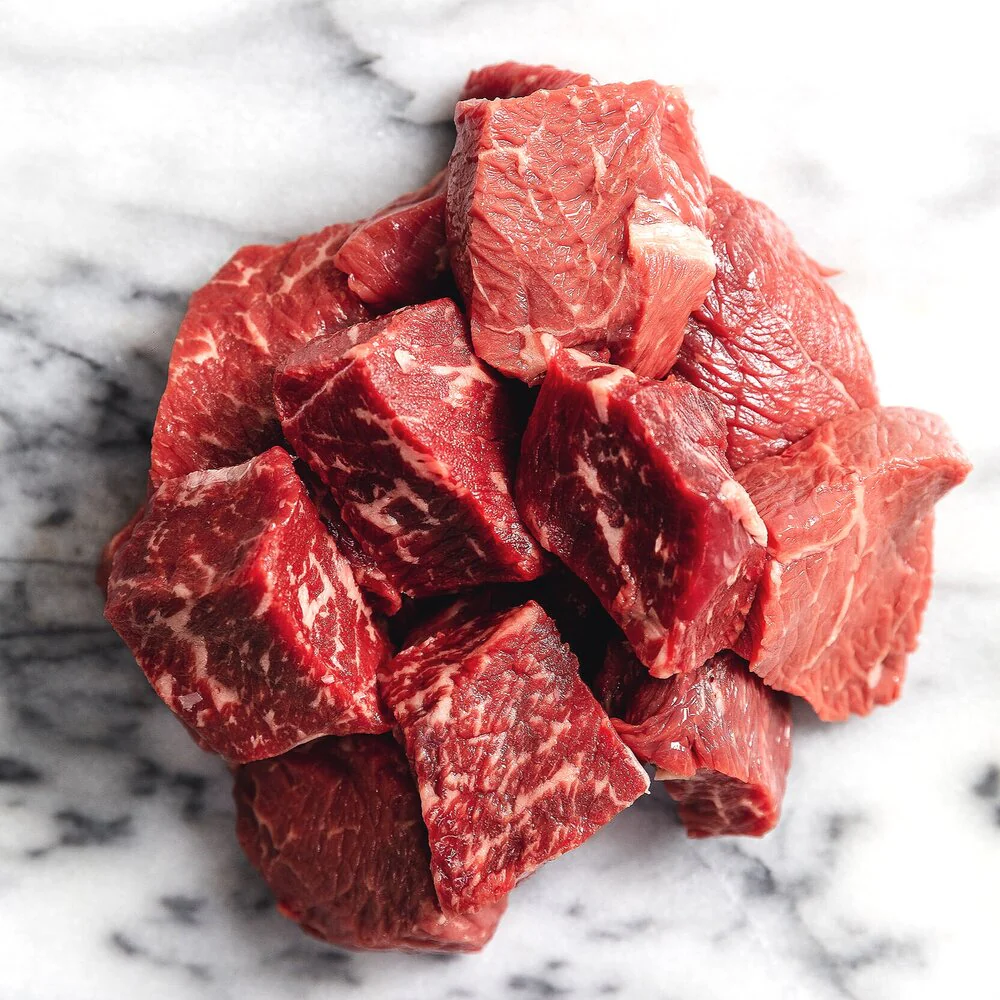Description
Origin:
Beef comes from domesticated cattle, which are believed to have been first domesticated in the Near East around 10,500 years ago. Cattle farming spread worldwide, becoming a staple protein source in many cultures. Beef can be prepared in various ways, including grilling, roasting, stewing, and frying.
The flavor and tenderness of beef can vary depending on the cut and the cooking method.
Other Names:
Yoruba: Eran malu
Igbo: Anụ ehi
Hausa: Nama
Swahili: Nyama ya ng’ombe
Health Benefits:
High in protein, which is essential for muscle growth and repair.
Rich in iron, which helps transport oxygen in the blood.
Contains vitamin B12, which supports brain health and the production of red blood cells.
Provides zinc, important for immune function.
Nutritional Information (per 100g):
Calories: 250 kcal
Protein: 26 g
Fat: 15 g
Iron: 2.6 mg (14% of Daily Value)
Vitamin B12: 2.6 µg (43% of Daily Value)
Fun Fact: Did you Know?
The hide from a single processed steer or heifer can be used to produce 12 basketballs, 144 baseballs, and 20 soccer balls. Furthermore, it takes 3,000 hides to make the number of footballs used each year by the NFL.
Uses:
Commonly used in steaks, burgers, roasts, stews, and broths.
Key ingredient in many traditional dishes worldwide, such as Nigerian suya, American steak, and Brazilian churrasco.
Recipes & Videos:
International Recipe: Classic Beef Stew Video: How to Make Beef Stew
Local Recipe: Nigerian Beef Suya Video: Nigerian Suya Recipe
Best Storage Method: Store raw beef in its original packaging in the coldest part of the refrigerator or freeze it if you plan to store it longer than 2 days.
Shelf Life: In the fridge: 3-5 days.
In the freezer: 6-12 months

 Cart is empty
Cart is empty 











Reviews
There are no reviews yet